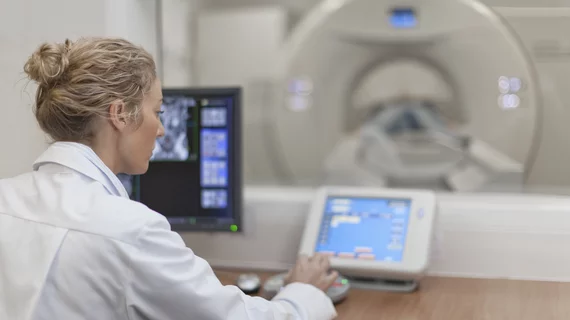36% of MRI facilities fail to meet Joint Commission guidelines
More than one-third of MRI facilities fail to adhere to the 2015 Joint Commission’s Revised Requirements for Diagnostic Imaging Services, according to a survey conducted by global MRI safety firm Metrasens.
Metrasens released its poll of 162 MRI professionals during this year’s MRI Safety Week. Thirty-six percent of those healthcare workers admitted their facilities didn’t stick to Joint Commission guidelines, despite the non-profit’s wide reach and accepted legitimacy across the U.S.
“The Joint Commission’s Revised Requirements for Diagnostic Imaging Services state that hospitals must manage safety risks in the MRI environment, but these survey results suggest that there is still room for improvement,” Tobias Gilk, an MRI safety expert and Metrasens consultant, said in a release. “The standards provide the most effective approach to assessing and identifying the individual risks an MRI facility faces, and gives managers the ability to implement mitigating practices and create effective policies that keep patients, family members and staff safe.”
The commission strongly suggests MRI facilities should collect data on incidents where ferromagnetic objects, like wheelchairs or oxygen tanks, enter the MRI suite, as well as information about any injuries resulting from the presence of ferromagnetic objects in the suite.
Many of these accidents result in substantial injuries and, in some cases, death.
Colin Robertson, Metrasens’ senior vice president, said in the release his company specializes in ferromagnetic detection systems and has been spending MRI Safety Week educating healthcare communities about preventive measures to avoid potentially lethal situations.
“These survey results mirror what we regularly hear from MRI managers,” Robertson said. “Namely, that many facilities have struggled to develop an effective system to record these events.”
For more insight into Metrasens’ mission to improve MRI safety across the country, check out Radiology Business’ interview with Tobias Gilk at this year’s AHRA conference.

